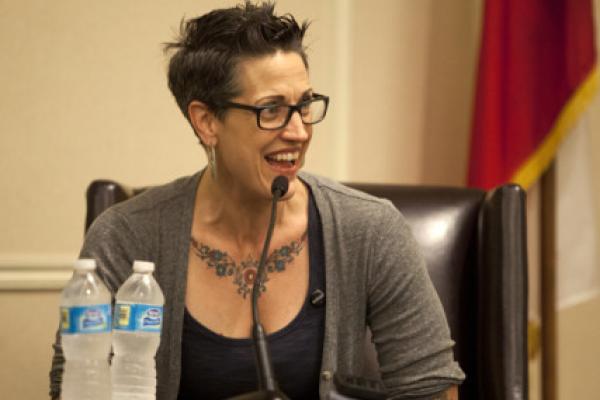Nov 8, 2013
PASADENA, Calif. — The first thing most people mention when they talk about Rev. Nadia Bolz-Weber is her tattoos. She has many — most of them religious in nature, including a large icon of Mary Magdalene covering her right forearm.
Then they talk about how tall she is (6 foot 1), that she looks more like the lead singer of an all-girl punk rock band than a pastor and that she (unapologetically) swears a lot — even from the pulpit while preaching.
All of the above is true and part of what makes Bolz-Weber unique among high-profile pastors and so-called “Christian authors.” (I hate that term. The word “Christian” is best used as a noun, not an adjective.)
Read the Full Article

Already a subscriber? Login
